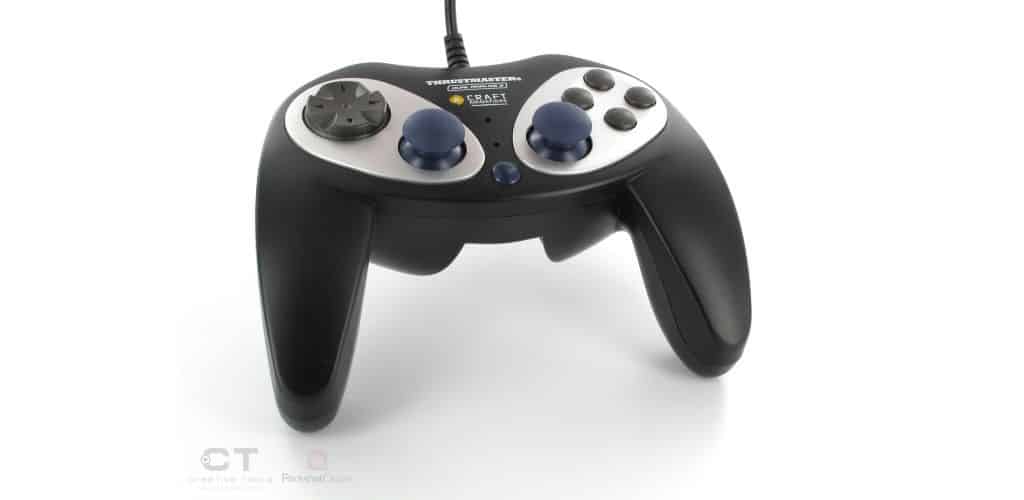The Federal Circuit has issued an opinion on the burden of proof for establishing estoppel in a case involving an inter partes review (IPR) petition.
The case is Ironburg Inventions Ltd. v. Valve Corp.
In 2015, Ironburg sued Valve for infringing U.S. Patent No. 8,641,525 (the “’525 patent”). In January 2021, a jury trial was held virtually due to the pandemic.
As the court noted,
Before closing arguments, the parties and the district court agreed that each juror should have the accused product in hand, and that device – a hand held controller for playing video games – was mailed to each juror.
The jury returned a verdict of willful infringement and assessed damages of over $4 million.
Valve had filed an IPR petition about ten months after it was sued. Ironburg filed a motion to estop Valve from presenting certain patent invalidity theories at trial based on various grounds. The district court granted the motion, finding that Valve was estopped from asserting those grounds.
The district court held that Valve had the burden of proof to show that it wouldn’t reasonably have raised the disputed grounds in its IPR petition.
The Federal Circuit found that because the “Non-Instituted Grounds were explicitly contained in the petition” and were thus raised during the IPR, Valve couldn’t raise them again in district court.
Under 35 U.S.C. § 315(e)(2),
The petitioner in an inter partes review of a claim in a patent under this chapter that results in a final written decision under section 318(a), or the real party in interest or privy of the petitioner, may not assert either in a civil action arising in whole or in part under section 1338 of title 28 or in a proceeding before the International Trade Commission under section 337 of the Tariff Act of 1930 that the claim is invalid on any ground that the petitioner raised or reasonably could have raised during that inter partes review.
(Emphasis added by court.)
The court noted that
We have previously held that “[t]o give effect to the language ‘reasonably could have raised,’” as used in § 315(e)(2), “estoppel applies not just to claims and grounds asserted in the petition and instituted for consideration by the Board, but to all grounds not stated in the petition but which reasonably could have been asserted against the claims included in the petition.’”
The court found that
Because the district court improperly placed the burden of proof on Valve, to show that it could not “reasonably . . . have raised” the Non-Petitioned Grounds in its petition, when instead the burden of proof rests with Ironburg to prove that these were grounds
Valve “reasonably could have raised” during the IPR, we vacate and remand for further proceedings.
The court noted that
We have not fully addressed the standards by which a determination is to be made as to what invalidity grounds not presented in a petition are estopped pursuant to §315(e)(2).
The court then agreed with the district court’s reference to conclusions by other courts that ‘an IPR petition “reasonably could have raised” any grounds that “a skilled searcher conducting a diligent search reasonably could have been expected to discover.”’
Thus, said the court,
we hold that, provided the other conditions of the statute are satisfied, § 315(e)(2) estops a petitioner as to invalidity grounds a skilled searcher conducting a diligent search reasonably could have been expected to discover, as these are grounds that the petitioner “reasonably could have raised” in its petition.
Here, said the court, there was an assumption,
not yet proven on the record, that the prior art search undertaken by Collective Minds was only “reasonably” diligent and did not involve extraordinary measures. If Collective Minds employed “scorched earth” tactics to find the references making up the Non- Petitioned Grounds, then its experience may be irrelevant to a determination of what would have been discovered by an ordinarily skilled searcher acting with merely reasonable diligence.
The court concluded:
The inquiry into what a skilled and diligent searcher would reasonably have discovered is ultimately concerned with what the searcher of ordinary skill would find through reasonable diligence and not what an actual researcher in fact did find through whatever level of diligence she exercised.
Thus, the burden was on Ironburg to prove, by a preponderance of the evidence, that a skilled searcher conducting a diligent search reasonably would have been expected to discover the prior art references at issue.
Just like the haiku above, we like to keep our posts short and sweet. Hopefully, you found this bite-sized information helpful. If you would like more information, please do not hesitate to contact us here.


